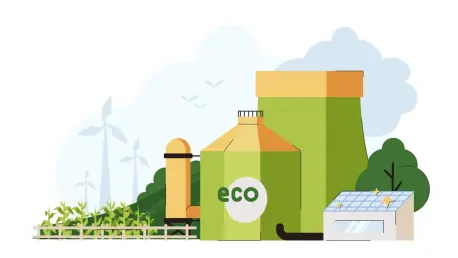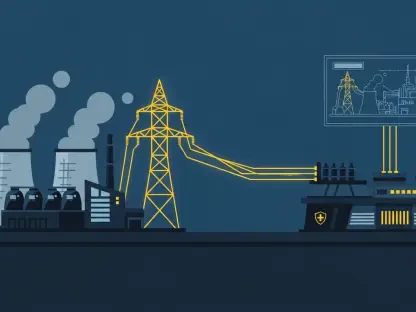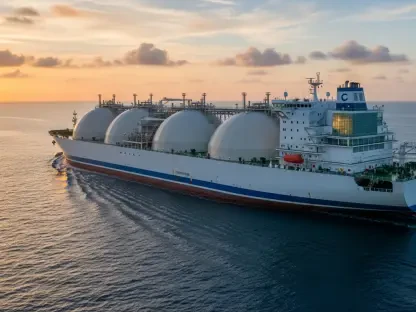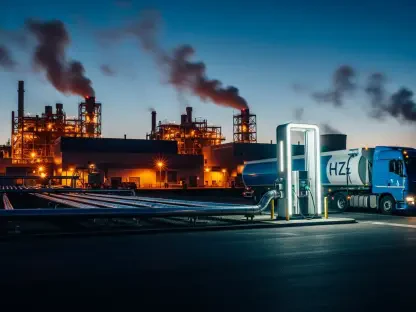Navigating Greener Waters
Could the solution to rising global emissions be found at sea? With international shipping responsible for a significant portion of pollution, the maritime industry holds tremendous potential for environmental transformation. The complex world of cargo carries the promise of cleaner oceans through innovations like biofuel, signaling a notable shift from traditional practices.
The Urgent Need for Sustainable Shipping
The global shipping industry is a formidable contributor to pollution, accounting for nearly 3% of worldwide greenhouse gas emissions. Such figures underscore the pressing need for sustainable practices if ambitious climate goals are to be reached. Maritime transport’s transition is pivotal, feeding directly into broader aspirations to achieve net-zero emissions and mitigate climate change impacts. With biofuel emerging as a key component of this transition, the future of shipping promises cleaner seas and skies.
Pioneering Efforts in Biofuel Adoption
Norden’s Biofuel Milestone: Norden marked a significant step in sustainable shipping by leading a biofuel bunkering project at the Port of Houston, Texas. This operation involved the prestigious International Sustainability and Carbon Certification (ISCC)/EU-certified B24 biofuel blend, which consists of 24% biofuel mixed with 76% very low sulfur fuel oil (VLSFO). This innovative move powered vessels transporting Albioma’s wood pellets to the remote Réunion Island, highlighting a tangible commitment to reducing supply chain emissions.
Collaboration with Albioma: The partnership with Albioma proved instrumental, unlocking potential through the B24 biofuel blend’s extensive benefits. Such collaborations pave the way for increased use of biofuel in maritime transport, showcasing a significant stride toward cleaner shipping practices.
Supply Chain Emissions Reduction: Norden’s biofuel operation serves as a testament to its dedication to lowering shipping emissions. The successful biofuel-powered voyage to Réunion Island not only marked a milestone in sustainable practices but also demonstrated how corporate responsibility aligns with global ecological ambitions.
Investment in Innovation: Since entering the biofuel sector in 2018, Norden has persistently invested in cutting-edge initiatives. With a stake in MASH Makes, a company devoted to biofuel innovation, Norden fosters advancements that promise to reshape maritime transport into an equitable and sustainable solution for combating environmental challenges.
Precedent-Setting Trials: Trials with carbon-negative biofuel offer groundbreaking solutions for drastically reducing emissions. These efforts spotlight the feasibility of emission control without new infrastructure obligations, illustrating seamless integration into existing maritime systems.
Expert Insights into the Evolution of Shipping
Industry experts emphasize the importance of biofuel adoption in reshaping global shipping. A recent study reveals that marine biofuels can significantly cut emissions, heralding a new era of greener voyages. Professionals involved in Norden’s trials express optimism, noting the practical benefits of biofuel use extend beyond environmental gains to economic efficiencies and long-term viability.
Setting the Course for Sustainable Maritime Transformation
Adopting biofuels is achievable through strategic planning and partnerships. Norden’s “book and claim” model offers an adaptable framework allowing companies to claim emission reductions even when directly using biofuel poses challenges. Developing technological advancements and fostering alliances create a support system for escalated sustainable practices.
Charting the Path Forward
In paving this path toward cleaner oceans, the maritime industry must seize opportunities for innovation. Biofuel’s promise extends beyond immediate reductions, presenting long-term possibilities for reshaping ocean transport. Future endeavors in technology and business partnerships will bridge the gap between aspiration and achievement, ensuring maritime progress aligns with environmental ambitions. At sea, as on land, cleaner futures demand decisive steps and collaborations, setting the course for a more sustainable world.









